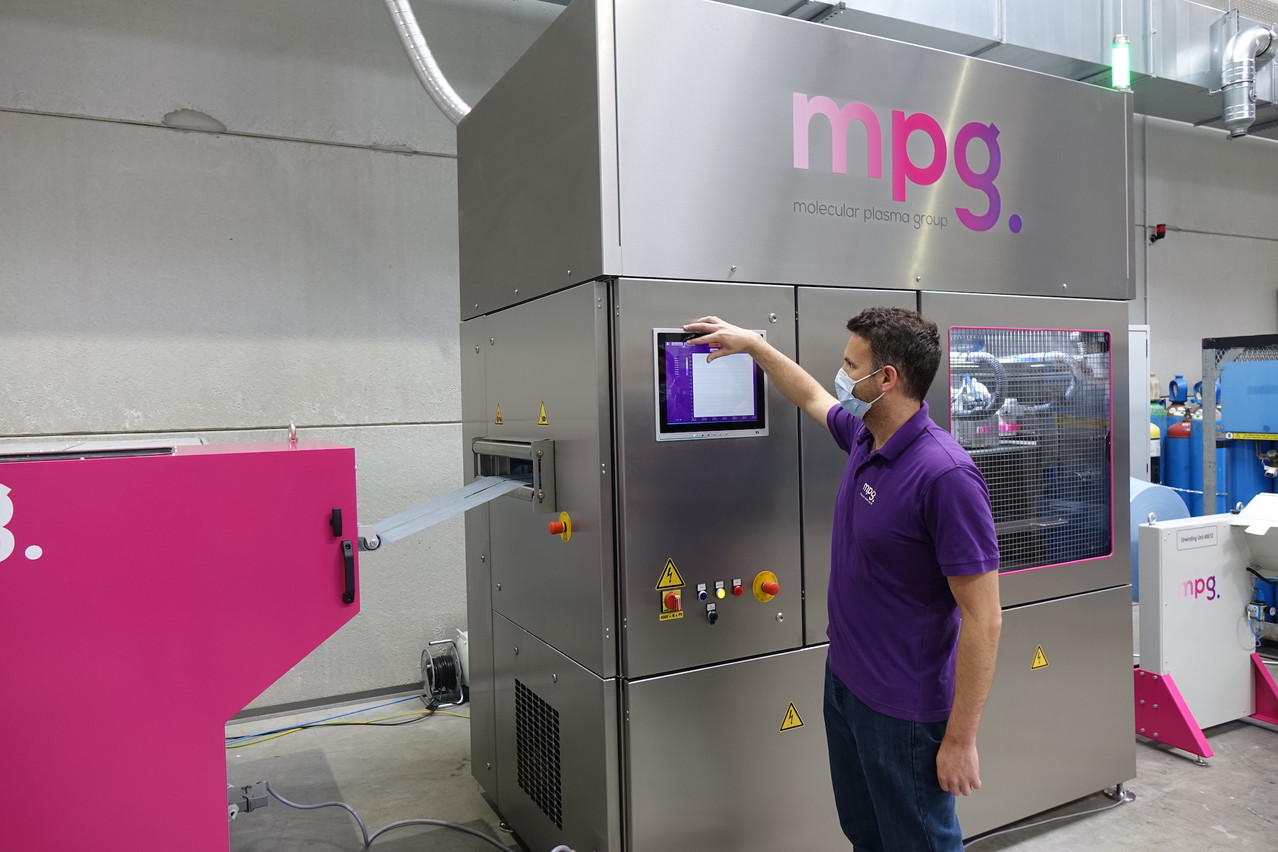“Our solution is much, much better from an ecological perspective,” says Marc Jacobs, CEO of Molecular Plasma Group Luxembourg.
“…and is also competitive from a cost perspective.”
The solution he’s talking about pertains to dry surface functionalisation, or the process of treating surfaces for different uses. There are a host of applications for this, such as creating antiviral coatings for the health industry or enabling adhesive bonding as a joining technique in the automotive, electronics or aerospace industries.
MPG uses molecular plasma technology to do this, which is quite new, having grown out of research done at the Flemish Institute for Technology Development and the Luxembourg Institute of Science and Technology. Founded in 2016, MPG Luxembourg was built directly on this research, and has since grown rapidly: it now has 20 employees and has doubled its revenue for two years in a row--in 2021, Jacobs reports, they nearly hit €6m.
The company is now profitable, and has transitioned from the startup to the scale-up phase.
Plasma as an alternative
Compared to traditional methods, such as those based on organic solvents, molecular plasma technology has several ecological advantages: it operates at ambient (rather than very high) temperatures, it’s cleaner and it allows for zero-emissions processes.
For the healthcare sector, MPG has used this technology to develop a unique surface coating for facemasks that uses citric acid, i.e. a natural food ingredient, as its active substance. “The solution is so unique that it has even attracted the attention of the WHO,” Jacobs comments.
Another example is in the automotive world, where the firm’s techniques are an improvement on the norm, which is to use toxic organic solvents to prepare surfaces when they need to be glued together.
The firm is still active in its R&D activities, which focus on applied research that can be implemented quickly.
“Molecular plasma technology is not yet dominant in the marketplace,” Jacobs comments, “but we have a lot of traction and demonstrated success in many fields. So… watch this space. MPG will grow rapidly.”
Ways of doing business
that mindsets are changing in the business world, as values like collaboration and information-sharing are trumping the traditional approach of fierce competition.
Asked if he has observed the same, Jacobs said: “I couldn’t agree more.” MPG is active in many collaborative projects in Luxembourg and Belgium, as well as on the European level, he explained, including with research institutions, industrial partners, universities and others.
Luxinnovation will visit (virtually) MPG in its next “Technology Site Visit”, scheduled for Thursday, 17 March. .
